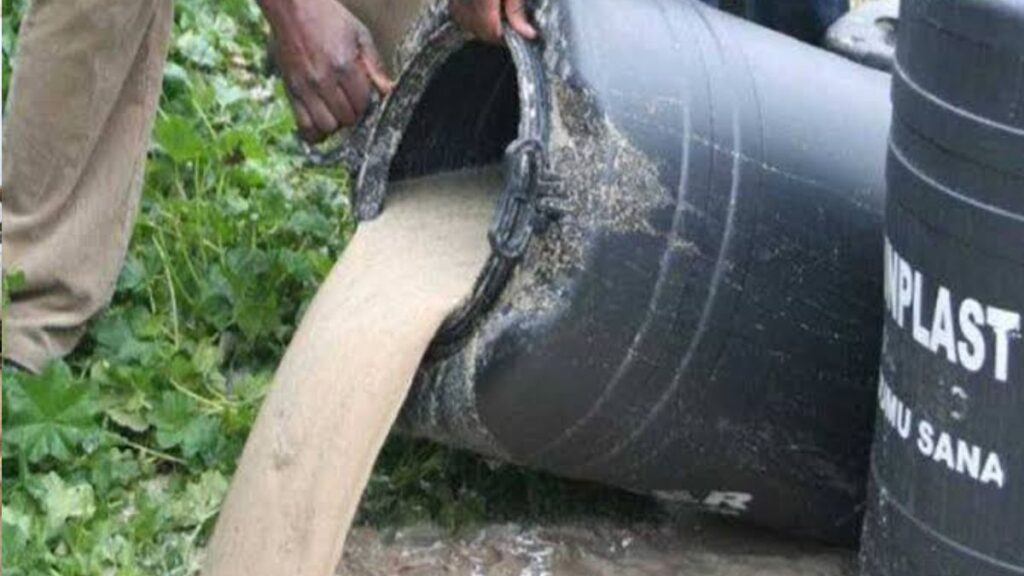KISUMU, Kenya (July 21, 2025) Police in Kisumu Central have destroyed more than 600 litres of illicit alcohol ingredients and finished product after raiding a concealed storage point hidden in a thicket. Acting on a public tip, officers moved in on Sunday, July 20, 2025, and recovered 10 jerricans of kangara mash (20 litres each), two 200‑litre drums of kangara, and 5 litres of chang’aa believed to be ready for sale. In all, roughly 605 litres were taken out of circulation.
Preliminary investigations indicate the site served as a temporary holding area where kangara was aggregated before being ferried to distillers elsewhere in the county. Destroying the recovered consignment at the scene was intended to prevent the mash from being processed into larger volumes of potent and often unsafe illicit liquor that circulates through informal markets.
One suspect thought to own the stash was arrested during the operation and is expected to appear in a Kisumu court on Monday, July 21, 2025, to answer to charges linked to the unlawful production, possession, and intended distribution of unlicensed alcohol. Investigators are following additional leads and have not ruled out further arrests as they trace individuals involved in storage, transport, or financing.
Police commended local residents for the timely intelligence that triggered the raid and urged communities to remain vigilant. Members of the public are encouraged to report suspicious brewing, storage, or late‑night deliveries especially in bushy or riverbank hideouts where mash drums are commonly concealed. Community alerts remain central to efforts to stem the flow of unregulated drinks that have caused injuries and deaths in parts of western Kenya.
The Kisumu action aligns with wider national and county campaigns targeting illicit brews, counterfeit spirits, and drug‑related offences that endanger health, strain household finances, and deprive government of revenue. County officials are coordinating with administrators, public health teams, and community policing forums to map hotspots, seize unsafe products, and fast‑track prosecutions. Residents can share information confidentially through local chiefs, Nyumba Kumi networks, toll‑free reporting lines, or established community policing committees. Continued cooperation between citizens and law enforcement is viewed as essential to protecting public health and strengthening neighbourhood security across the region.

